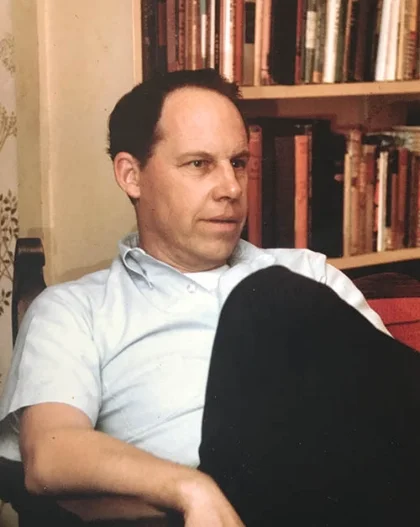About Carol
Carol was a seeker — and a fighter.
She met her future husband "Rock" in 1944 at the University of Chicago. They were married in 1949, when she was 22 and just before the Korean War started in 1950. Carol was pregnant with their first of 4 children when Rock went to war. She completed her BA in 1950, though academic accomplishment seemed quite abstract to a soldier’s wife who feared her man might not come home. World War II ended in August 1945, and memories of disruption and loss were too fresh to be forgotten, so building hope for the future out of the trauma of killing in a far off land was a fragile, frightening beginning. But Rock came back safely, and the family moved to Minnesota in 1952. By 1958, when my family moved to our suburb of Excelsior, MN, they had 4 kids — 3 boys and a girl.
We met when Carol’s oldest and my second child were part of a car pool for summer school. We were suburban housewives and mothers together at a time when that was the expected — and only acceptable — role for women of a certain class, whose husbands would be breadwinners and their women homemakers and volunteers. We filled those roles together, at the same time when our world was changing drastically. We joined in Civil Rights marches, were numbed by President Kennedy’s assassination... and perhaps astonished the little village of Excelsior when we walked with bowed heads in a small, saddened knot of white mourners on a rainy Sunday in April to mourn the assassination of Martin Luther King. Our children were learning about protest and violence, and by the late ‘60s, we were writing conscientious objector letters for each other’s sons who refused to serve in Vietnam, and could face jail terms.
PTA volunteering was shut off because the community regarded us as dangerous "radicals" for supporting "wild ideas" like sex education and more enriching programs for "middle as well as top" students. Many families were torn apart by the cultural shifts, and many young people and their parents, spent hours in deep discussion about the meaning of life and death — about prejudice and killing — and a draining nuclear arms race. And we struggled with questions of our own identities as wives, mothers of kids soon leaving home, and concerned human beings wondering how to develop our own potential, to satisfy some inner hunger, but also to help make this a better world. Carol was always a questioner and a prodder. She not only asked "Why?" and "How?" but she made all her friends seek new answers, cross boundaries, take on battles about right and wrong, about fairness and giving everybody a chance.
None in our circle of friends had sons in Vietnam. We were grateful but guilty. Why should we be spared that agony? Why, in our democracy, should sons of the poor and minority women be taken? It made us question what our roles as women should be, in a country troubled by doubts and uncertainties, and failing our devotion to essential American values such as justice. Old models of behavior were topsy–turvy. We had education and advantage, but were naive and sheltered in our suburban cocoons. I was the first of the women in our group to turn my back on suburbia — and on old role models — to go to work in the city, at the university, in fact, where I expected to figure out which graduate degree would prepare me for the world of work. I was 41, it was 1966. Carol was 39. She also began to think that going back for graduate study was a good idea, but she clearly loved the academic challenge rather than the idea of job preparation. She knew she wanted anthropology, a theoretical doorway to understanding culture and change.
But getting accepted into graduate study was another thing. The hassles she had with getting credits transferred from Chicago ("Guess I was too much in love to study very hard — can these be my grades — really?"). She was unaware of anyone helping older women students re–enter the complicated academic world. She had fought many battles in her life, but she almost gave up on this one before she began. She got through a class, as an Adult Special, and inspired three other women friends to give it a try. One completed her BA; one earned an MA, then a law degree; and one earned a PhD and entered family therapy practice. Once again, Carol was our leader in learning how to fight the system!
She had many doubts about school, her future, what she would do with further study when her kids were needing money for college. She continued to wrestle with big questions, but never lived to find answers for herself. She fought a long, losing battle with cancer. When she died in February of 1975, her family sought to commemorate the concerns and contributions of her living so that death, like her life, would have meaning. So, the Carol E. Macpherson Memorial Scholarship helps women who, like Carol, are seekers. It memorializes her undying concern for fairness, for opportunity for women to find new paths, for the value of a thinking mind that will always keep asking the tough questions, and for respect for the nurturing roles women continue to play even as they take on new responsibilities in their families and in their communities.
In every interview in which I have participated, I've always thought how thrilled Carol would be to learn of the extraordinary accomplishments of the scholarship seekers. She would applaud every one of you wonderful women, and would be so proud to know that her legacy of helping others strive still goes on. I feel she does know it.

